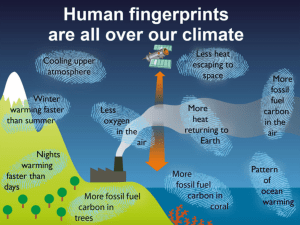Dr. Warren M. Washington is one of the world’s most influential climate scientists.
Born in 1936, in Portland, Oregon, Washington grew up interested in science from a very young age. He went on to earn a bachelor’s degree in physics and a master’s degree in meteorology from Oregon State University, and then his doctorate in meteorology from Pennsylvania State University. In 1963, he joined NCAR (National Center for Atmospheric Research) as a research scientist.
During his first few years at NCAR, Washington helped create one of the first computer models to examine the earth’s climate. In the past, scientists merely theorized about and observed the weather to make predictions. However, Washington has said that this new model “shows the basic change of seasons, the change of day/night, temperature and winds.” It also helps make long-term projections about future weather patterns by collecting and graphing weather data. This climate model also contributed to the massive rise in awareness of climate change.
Dr. Washington told Business Insider in a 2019 interview, “Keep in mind that we’re the first generation that sees climate change in human history.” “Most climate change has been us going in and out of ice ages over thousands of years. Now we’re seeing things happen over tens of years.” The rapid climate change allowed for a lot of weather data to be had, which Washington and his team used in the 2007 Intergovernmental Panel on Climate Change (IPCC) report. This data ultimately determined that the increase in industrialization and technology has directly impacted our environment. Though this discovery may appear obvious in hindsight, this was a groundbreaking revelation at the time that led Dr. Washington and his team to the 2007 Nobel Peace Prize.
 This image depicts some of the aspects of climate change that have occurred due to humans. Our “human fingerprints” have resulted in global warming, more fossil fuels in the ocean and air, and much more. I often get caught up in the misconception that climate change is not just global warming but so much more.
This image depicts some of the aspects of climate change that have occurred due to humans. Our “human fingerprints” have resulted in global warming, more fossil fuels in the ocean and air, and much more. I often get caught up in the misconception that climate change is not just global warming but so much more.
One very significant development that came from this model was the ability to study hurricanes and how they have changed over time. Washington’s computer model helped him discover a positive feedback loop between the warming ocean and atmospheric temperatures, creating a greater hurricane strength. A positive feedback loop is one that brings something further away from its target setpoint. In this case, as industrialization and the advancement of technology continue to allow greenhouse gases to warm up the atmosphere and the ocean, the rising heat of the ocean causes stronger hurricanes. Because the sea continues to get hotter, the storms continue to grow stronger, bringing the hurricane strength further and further from its target set point. The other type of feedback loop is a negative feedback loop, where a feedback loop brings something closer to its target set point. An example of this would be how humans regulate their body temperature by shivering or sweating to heat up or cool down, respectively.
Throughout his career, Warren Washington has even gone on to earn the National Medal of Science by Barack Obama, served on commissions for climate change, became the president of the American Meteorological Society. In 2020, at 83 years old, he won the Tyler Prize for Environmental Achievement.
Not only does Washington’s model continue to be one of the most innovative and influential models in climate change studies, but he continues to be a role model for generations of students regardless of their background. Washington has mentored many students to pursue a science career through the NCAR SOARS program (Significant Opportunities in Atmospheric Research and Science). In 1999, Washington even won the Dr. Charles Anderson Award from the American Meteorological Society for mentoring and fostering a diverse and passionate community of young scientists toward success.
Washington is just one of many Black scientists who has curated innovative inventions that will benefit us for centuries to come. I find it fascinating that without his innovative research of climate change, the way we view our own effects on the world could be entirely different, possibly leading the climate to be even more extreme than it already is.


Leave a Reply